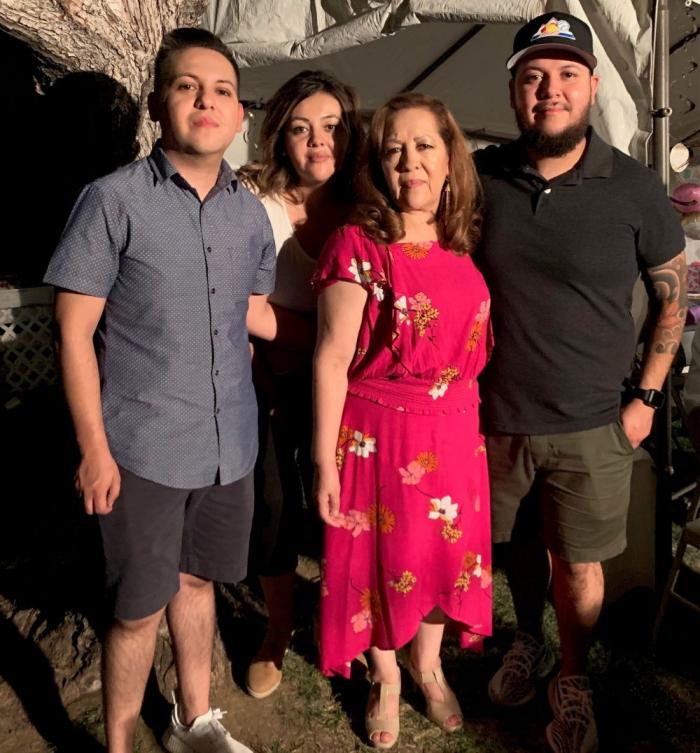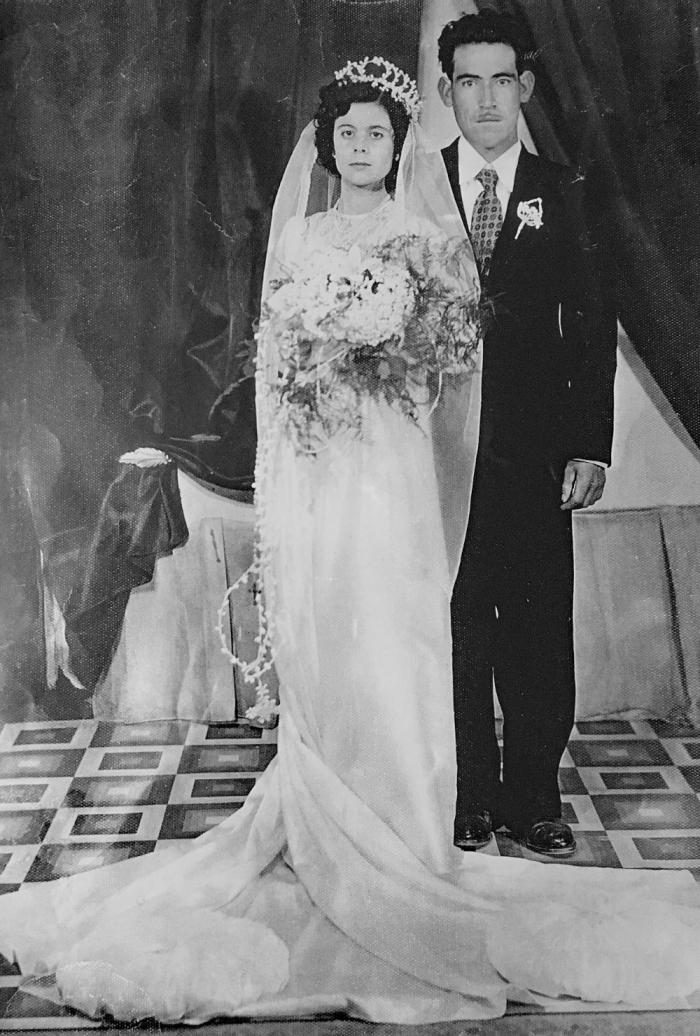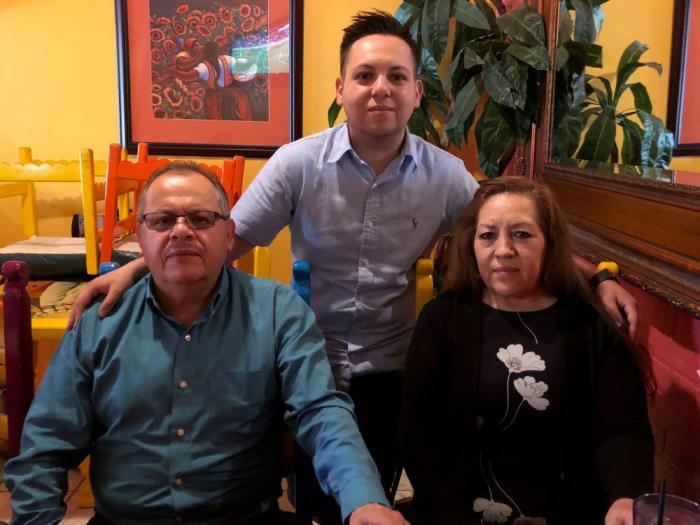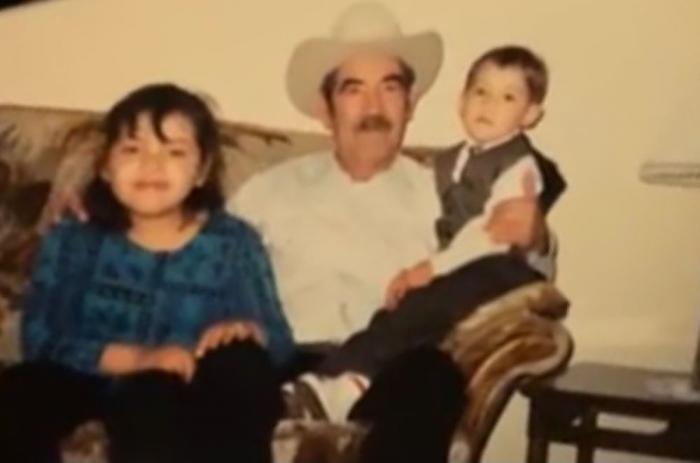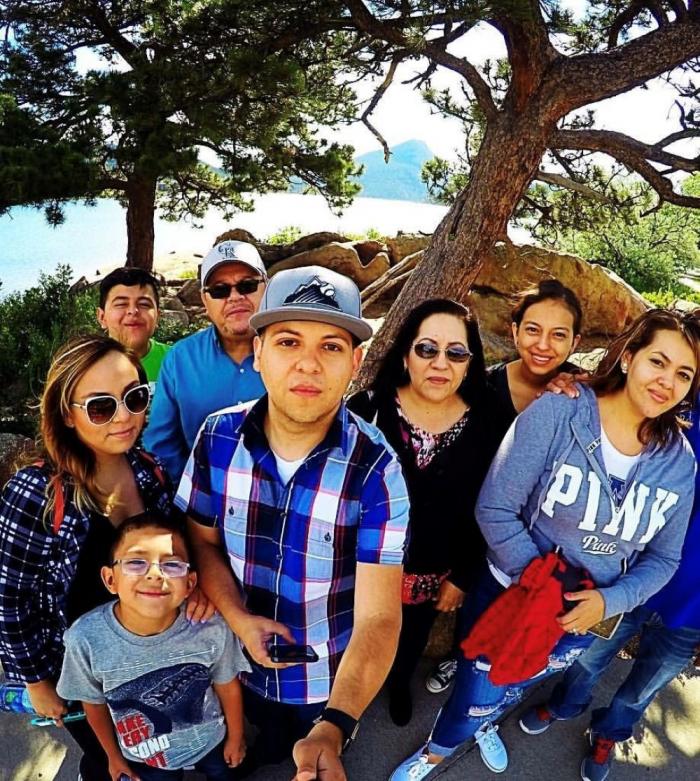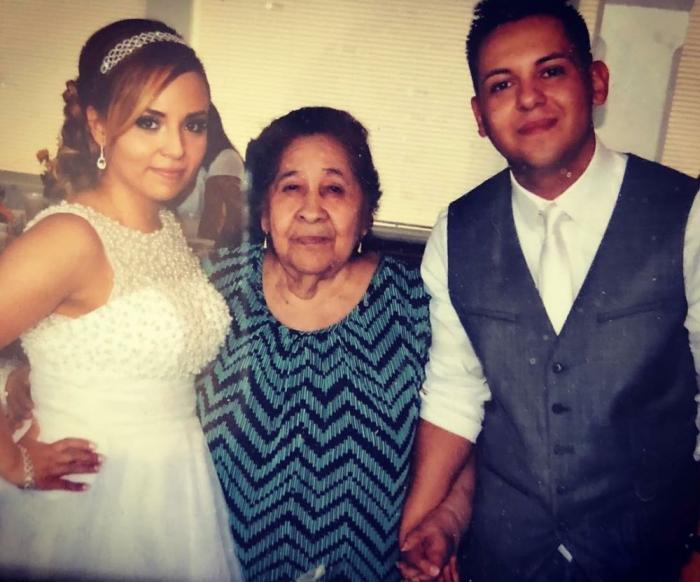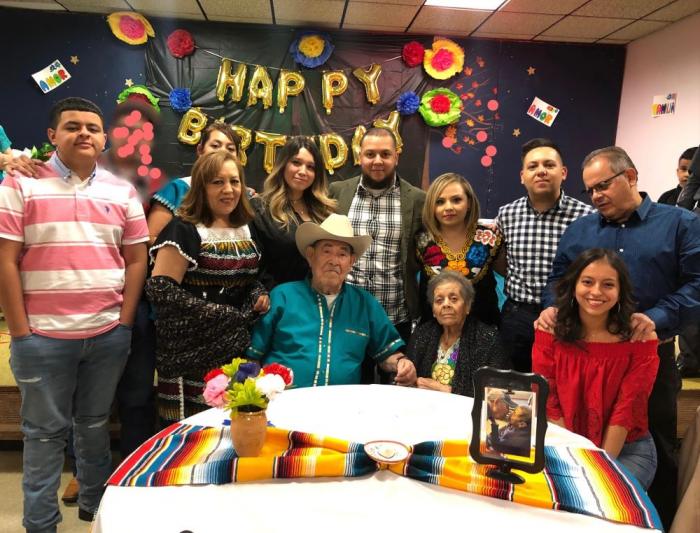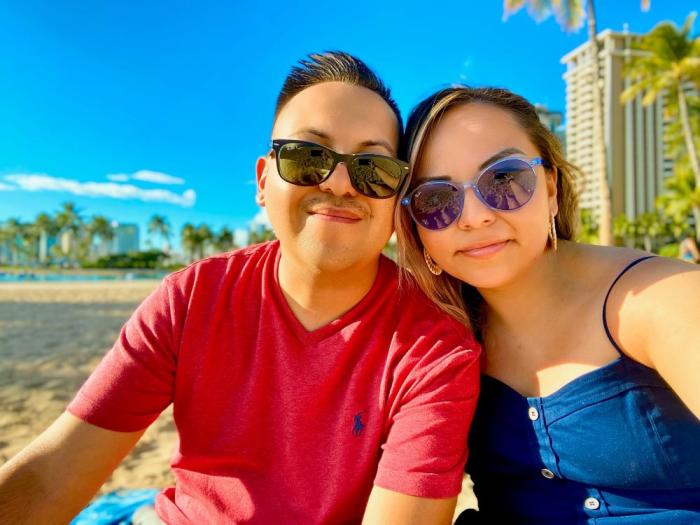Growing up a first-generation American
Sept. 15 through Oct. 15 is National Hispanic Heritage Month, a time to recognize the contributions of Hispanic and Latino Americans to our nation. Just like our customers, Denver Water employees have diverse backgrounds and we’re proud of our rich cultural diversity that reflects the 1.5 million people we serve.
Cristobal ‘Cris’ Villalba will never forget the first time he visited his mother’s rural childhood home in Fresnillo, Mexico — a small community in central Mexico where a trip to the market required a long commute and the closest hospital was hundreds of miles away.
“As a first-generation American, I had heard stories of my family’s struggles in Mexico and what they went through to come to the U.S. But seeing firsthand where my mom grew up truly made me appreciate the life my parents have built here,” said Villalba, who joined Denver Water in 2019 and does data analysis as a quality assurance technician for our customer care team.
That trip was more than 20 years ago, but it made an impression on 12-year-old Villalba that still influences him today.
Villalba’s parents were born in Mexico, immigrated to the United States as young adults and met in Colorado.
“It’s such a common response that it sounds so cliché, but they wanted a better life — for themselves and their future families,” said Villalba.
Villalba’s father grew up surrounded by growing crime and poverty stemming from a failing agricultural economy around the city of Nuevo Casas Grandes in the state of Chihuahua in northern Mexico.
After graduating high school at age 15, his father set his sights on coming to the U.S., planning to make the journey across the border with a friend. They made it more than 600 miles, mostly on foot, to Trinidad, Colorado, when they were caught by authorities and sent back to Mexico.
Although disheartened, Villalba’s father didn’t give up.
Back in Mexico, he went to college and took courses in accounting. Unable to find employment and with his dream of living in the U.S. still in mind, he applied for a work visa. At 17, he moved to Texas to work on a farm, eventually making his way to Colorado.
More than 660 miles south of Nuevo Casas Grandes, in Fresnillo, Villalba’s mother also dreamed of a life in the U.S.
She was one of seven children, two of whom died in early childhood due to a lack of quality medical care in the area. She was raised by a single mother who worked very hard to support her family, but they struggled to make ends meet.
At 18, she acquired a work visa and moved to Colorado to live with her brother. There, she worked at a sewing factory and soon met Villalba’s father.
“Before I was born, my parents had already started to build our family’s legacy here in the U.S.,” he said.
Over the span of 35 years, Villalba’s parents went through the lengthy process of approvals and paperwork to get many of their Mexican family members into the U.S., starting with his grandfather.
“Family has always been important. I think it’s a common value in most Mexican families,” said Villalba.
When Villalba and his two siblings were young, his parents both worked several jobs while his grandparents cared for the children.
“Many Mexican families struggle when they first arrive in the U.S. Families are often broken apart geographically as they await paperwork and other logistics to join each other in the U.S. Adults often work several jobs to provide for their families separated across both countries, and this means other family members often care for the children.”
Villalba’s grandfather became an important influence in his life.
“My grandfather taught me how to use tools to build things and helped me understand the value of hard work. As a kid, I remember going out with him to collect aluminum cans to turn into the recycling center to earn money to buy Pokémon cards. He taught us that if we wanted something, it wasn’t just given to us — we had to work for it,” said Villalba.
It’s a mantra of hard work that Villalba’s entire family demonstrated.
In the late '90s, his parents’ hard work paid off — they saved enough money to purchase a music store in Denver’s Athmar Park neighborhood.
“The store became a gathering place in our neighborhood and helped bring together the small Hispanic community in Athmar Park,” said Villalba.
The store sold records and stocked cassette tapes and CDs as records became less popular. They invited musicians to play at the store and also housed a very successful Ria Money Transfer location, where people would come to transfer money to support their families in Mexico.
“At the time, there were not a lot of Mexican businesses in our area. The store was my parents’ way of helping to bring people together, to strengthen not only our local economy and provide for our family, but to build a community,” said Villalba.
And it’s within this small Hispanic community where Villalba and his siblings grew up, absorbing the stories and struggles of other Mexican families that resembled their own.
“There are so many people I have known throughout my life whose stories and experiences have shaped who I am today,” said Villalba.
One big influence was his elementary school English teacher.
“Ms. Bailey taught English in Mexico for a few years. She understood how important it was for Hispanic children to stay connected to their heritage and their language,” said Villalba.
Read more about Denver Water’s diverse workforce and the cultural experiences that shaped their lives.
Volunteering her time during and outside of school, she taught many of her Hispanic students to read and write in Spanish.
“This was definitely not something teachers were focused on or saw value in at the time. Although nearly all of us spoke Spanish in our homes, our parents worked several jobs and didn’t have the time to teach us how to read and write the language,” said Villalba.
“As a child, you don’t always understand everything that is happening around you. Looking back now, I realize that Ms. Bailey was such an influential and important person in my life. I’m not sure if I would have ever learned how to read or write Spanish if it weren’t for her.”
Today, Villalba continues to learn from others, work hard, appreciate what he has and honor his family.
He and his wife, Jeanette, have known each other since childhood and have been married for seven years.
“My wife’s family also emigrated from Mexico, so we share similar stories and have many of the same values,” said Villalba. “Nearly every weekend we are doing something with our family members. Spending quality time with them or vacationing together has become great bonding time.”
And after losing grandparents from both families in the past two years, family is even more precious to Villalba.
“During one of the last conversations I had with my 91-year-old grandfather before he passed, he was still imparting wise and inspiring advice. He told me to always stay positive, be flexible and adapt to whatever life throws my way.”
When a difficult situation arises, I find myself pausing and thinking about all my family has gone through. If my parents and my family can sacrifice so much, overcome all of the challenges and struggles they have faced in their lives and still accomplish so much — well, there’s no excuse for me not to reach my goals.”


